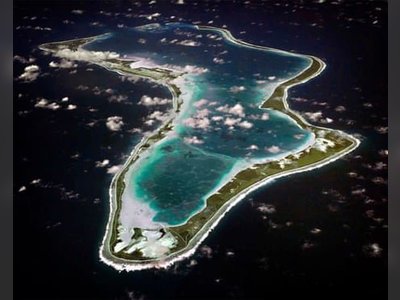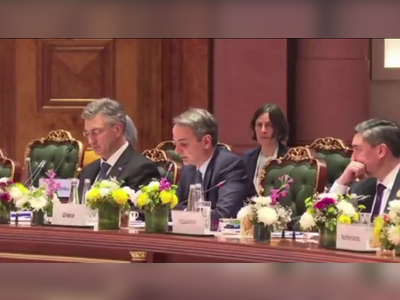
Minister De Castro endorses new education strategy for OECS
Education Minister Sharie de Castro along with her counterparts from the Organization of Eastern Caribbean States (OECS) has endorsed a new Education Sector Strategy for the period 2022-2026 which seeks to transform education in the eastern Caribbean.
A press release by the Ministry of Education noted that de Castro attended a two-day retreat in St Lucia alongside other regional leaders in education and explored strategies for advancing higher education within the jurisdictions of the OECS. She was accompanied by the President of H Lavity Stoutt Community College (HLSCC), Dr Richard Georges.
The Minister said the plan seeks to address some of the main existing challenges facing education across the OECS member states.
“It is important to note that the ministers, presidents, and principals in attendance found that they shared many challenges in relation to creating access to tertiary education as well as reliable models for financing the sector,” de Castro said while reporting on the event.
She said the challenges to be confronted have been categorised into seven strategic imperatives, two of which are focused primarily on improving access, relevance, and quality of higher education in the OECS.
The others, she said, include providing opportunities for Technical and Vocational Education (TVET) for all learners and increasing access to and relevance of tertiary and continuing education.
“This imperative recognises the critical role that higher education has to play in the OECS in improving skills, growth, and productivity,” the Education Minister said.
The meeting, which was held on the July 7 and 8 identified and examined some of the challenges confronting the development of higher education in the region, with a view to exploring strategies for advancing education at this level.
President Richard Georges delivered a presentation on the successes and challenges faced by HLSCC and highlighted the opportunities the event has created for the collaboration between regional colleges.
“While we have met throughout the pandemic, this was the first real live interaction between most of the College leaders and Ministers of Education. We have already begun to discuss collaborations for our mutual benefit, especially between the member states that are also British Overseas Territories,” the president said,
President Georges further stated that the OECS Commission must be commended for the important work it continues to do in the various areas of regional integration.
The meeting provided the opportunity for policymakers to engage in constructive dialogue on substantive issues regarding higher education development in the OECS including conceptualizing a strategy to strengthen the OECS tertiary institutions and increase access to their programmes and enhance their capability to deliver quality education and increased access.
Representatives shared innovative ideas and successful practices that have contributed to educational developments in higher education at the national level and explored sustainable financing models for Higher Education in the region.
They also agreed on outlined policies and strategies to advance the implementation of the specific imperatives relating to higher education in the OECS Education Sector Strategy.
The general output of this meeting entailed a detailed roadmap that outlines proposed solutions to the challenges including synergies and linkages between national and sub-regional planning for improving higher education and a detailed set of key policy issues and identification of feasible policy options for improving higher education as it relates to access, quality, and financing in the region.
The Minister said the plan seeks to address some of the main existing challenges facing education across the OECS member states.
“It is important to note that the ministers, presidents, and principals in attendance found that they shared many challenges in relation to creating access to tertiary education as well as reliable models for financing the sector,” de Castro said while reporting on the event.
She said the challenges to be confronted have been categorised into seven strategic imperatives, two of which are focused primarily on improving access, relevance, and quality of higher education in the OECS.
The others, she said, include providing opportunities for Technical and Vocational Education (TVET) for all learners and increasing access to and relevance of tertiary and continuing education.
“This imperative recognises the critical role that higher education has to play in the OECS in improving skills, growth, and productivity,” the Education Minister said.
The meeting, which was held on the July 7 and 8 identified and examined some of the challenges confronting the development of higher education in the region, with a view to exploring strategies for advancing education at this level.
President Richard Georges delivered a presentation on the successes and challenges faced by HLSCC and highlighted the opportunities the event has created for the collaboration between regional colleges.
“While we have met throughout the pandemic, this was the first real live interaction between most of the College leaders and Ministers of Education. We have already begun to discuss collaborations for our mutual benefit, especially between the member states that are also British Overseas Territories,” the president said,
President Georges further stated that the OECS Commission must be commended for the important work it continues to do in the various areas of regional integration.
The meeting provided the opportunity for policymakers to engage in constructive dialogue on substantive issues regarding higher education development in the OECS including conceptualizing a strategy to strengthen the OECS tertiary institutions and increase access to their programmes and enhance their capability to deliver quality education and increased access.
Representatives shared innovative ideas and successful practices that have contributed to educational developments in higher education at the national level and explored sustainable financing models for Higher Education in the region.
They also agreed on outlined policies and strategies to advance the implementation of the specific imperatives relating to higher education in the OECS Education Sector Strategy.
The general output of this meeting entailed a detailed roadmap that outlines proposed solutions to the challenges including synergies and linkages between national and sub-regional planning for improving higher education and a detailed set of key policy issues and identification of feasible policy options for improving higher education as it relates to access, quality, and financing in the region.











